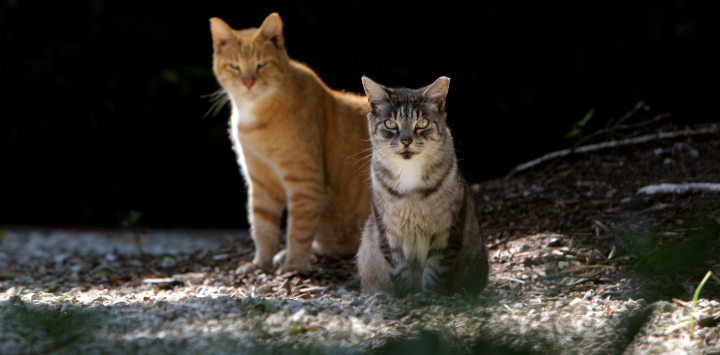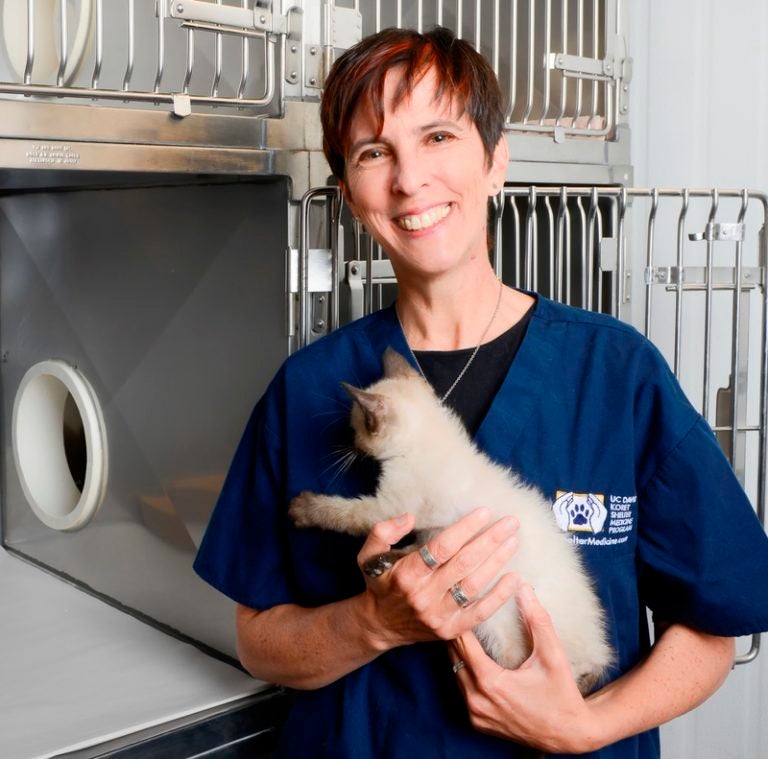
The Best Friends Podcast Episode 23
We’ve gotten pretty good at saving dogs in shelters, but that’s not the case for cats. 69% of all animals killed in shelters last year were feline That two-to-one ratio of cats killed to dogs has not improved year over year, and it’s clear that what we’ve been doing isn't effective. So what is working when it comes to saving cats?
Launched in 2014, the Million Cat Challenge smashed its goal of saving one million cats in five years. The campaign encouraged shelters to save more cats by implementing five key initiatives; alternatives to intake, managed admission, capacity for care, removing barriers to adoption, and return to field. These approaches are intended to create a structure around which shelters can make the best lifesaving decision for each individual cat.
We spoke with a cofounder of the Million Cat Challenge, Dr. Kate Hurley, to learn more about her, the challenge, and talk about what we need to do going forward to save every cat that can be saved.
Click here to check out all the episodes from the podcast.
 Resources from this episode
Resources from this episode- Million Cat Challenge - Get Started
- Join the Million Cat Challenge
- Maddie's Fund: Rethinking the Shelter's Role in Community Cat Management
- Best Friends Animal Society: Adoption Barrier study and summary
- Best Friends Animal Society: No-Kill Shelter Positive Outcome Study
- Community Cat Programs Handbook: Strays and Ferals
- To Return-to-Field or Not?
- Trap-Neuter-Return (TNR) Essentials
- Solutions to Cat-Related Issues
- Caring for Abandoned Kittens
- Neonatal Kitten Toolkit

Dr. Kate Hurley
Director of U.C. Davis Koret School of Veterinary Medicine and cofounder of the Million Cat Challenge
Dr. Hurley began her career as an animal control officer in 1989 at the Santa Cruz SPCA, a private shelter providing field and sheltering services to the community in Santa Cruz, CA. She enjoyed the job more than she ever could have imagined, especially the feeling that she was able to help people take better care of their pets as well as protecting animals every day. Becoming a veterinarian seemed a logical way to continue serving both pets and people, and after six years she left the Santa Cruz SPCA to attend the UC Davis School of Veterinary Medicine. Hurley soon found she couldn’t tear herself away from shelter work, however, and after graduation from veterinary school in 1999, went immediately to work as a shelter veterinarian. Hurley loved that job, too, but in 2001 couldn’t resist the opportunity to return to UC Davis to become the first in the world to undertake a residency in shelter medicine.
During her three-year residency, Hurley investigated and characterized one of the first documented outbreaks of virulent systemic feline calicivirus. Hurley has built on this experience with extensive research on feline upper respiratory infection in the multi-cat environment. Following completion of the residency, Hurley became the director of the UC Davis Koret Shelter Medicine Program.
Two of Hurley’s proudest achievements are co-authoring the Association of Shelter Veterinarians’ Guidelines for Standards of Care in Animal Shelters and co-editing the textbook Infectious Disease Management in Animal Shelters. She also co-authored the first-ever vaccine guidelines specifically for shelter dogs and cats. Hurley co-chaired the organizing committee for a specialty in shelter medicine, a 10-year process that culminated in 2014 with approval by the AVMA of a shelter medicine specialty within the American Board of Veterinary Practitioners. Hurley’s research interests include welfare of confined dogs and cats, humane and effective strategies to manage community cats, and infectious disease (especially strategies for prevention). She will always love shelter work because it has the potential to improve the lives of so many animals and the people who work so hard to care for them.
 Episode Transcript
Episode Transcript



